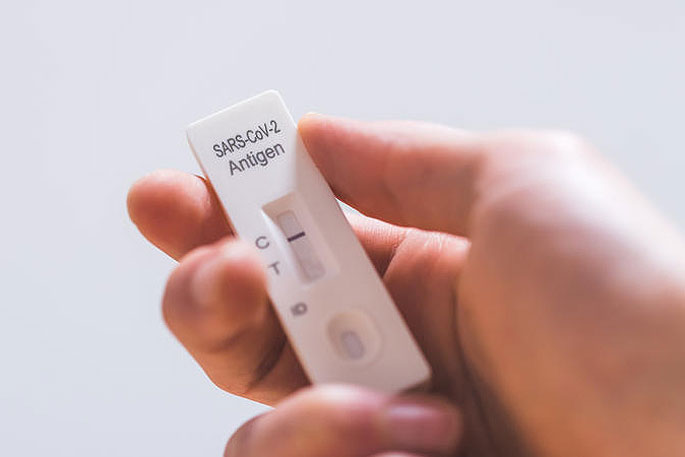The Bay of Plenty District Health Board is acknowledging any stress caused to residents who have experienced a delay in receiving their Covid-19 test results.
SunLive understands that people are waiting days for tests to come back, resulting in sick leave running out and symptoms completely disappearing.
Bay of Plenty District Health Board Covid-19 Incident Controller Trevor Richardson says generally, test results are available within 48 hours from receipt of the sample at the laboratory, however, this depends on testing volumes.
'It should be noted that samples of close contacts of cases and high-risk individual are prioritised by laboratories.
'Negative results will be sent via text and Public Health Unit will contact individuals for positive results.”
Trevor says information on financial support while awaiting test results are available on the Unite against Covid-19 website.
'Employers need to apply for this for their employees when required. You can also contact Whanau Ora on 0800 838 282 or MSD COVID Helpline 0800 559 009.
'Work is continuous and ongoing to manage demands for testing and minimise processing times for the turnaround of tests. Laboratories have processed a significant volume of daily tests since the start of this current outbreak and the demand for testing continues to be high.
'Work is also underway by the Ministry of Health to review the testing strategy to take a risk-based approach utilising ‘the right test to achieve the right outcome' may include rapid antigen testing in multiple settings and scenarios.
'This will contribute to managing the demand on laboratories and provide greater capacity for them to undertake priority testing as part of the management of outbreaks and protection of vulnerable and at-risk communities,” says Trevor.
From mid-December, 15-minute Covid-19 rapid antigen testing will be available at no cost from community pharmacies throughout New Zealand until the end of January 2022.
When the Auckland boundary lifts at 11.59pm on Tuesday, December 14, anyone travelling from Auckland who is not fully vaccinated will need to carry with them evidence of a negative test result within 72 hours of travel.
In addition, those who are travelling in other parts of the country with a transport company that requires unvaccinated individuals to be tested will also be required to carry evidence of a negative test result.
'Aucklanders have borne the brunt of the Delta outbreak, facing restrictions for an extended period to keep the rest of New Zealand safe. But the time has come to allow all New Zealanders to reconnect with one another over summer as safely as possible,” says Director-General of Health Dr Ashley Bloomfield.
Testing for asymptomatic unvaccinated individuals over 12 years wishing to depart from Auckland, and asymptomatic unvaccinated domestic travellers from elsewhere in New Zealand, can be a supervised rapid antigen test at selected community pharmacies.
'For rapid antigen tests, the Ministry of Health strongly recommends this is administered as close as possible to the time of travel, preferably within 24 hours before departure.
'Travellers are still able to use a negative PCR test to meet any travel requirements, but that is not recommended. Using the alternative rapid antigen test will allow our laboratories to focus on processing PCR tests.
'This will reduce the turnaround time for returning results to symptomatic people and close contacts of confirmed cases as we continue to respond to the current outbreak,” says Dr Bloomfield.
Asymptomatic unvaccinated travellers over 12 years from other parts of New Zealand will need a proof of negative test taken within 72 hours if they travel with a transport company that decides to implement this testing requirement for travel on their service.
Unvaccinated workers who are already part of a testing regime for crossing the Auckland boundary can continue with their current regime – other unvaccinated workers can use the negative test within 72 hours.
'Testing to meet domestic travel requirements will be free of charge for the core summer period and available from December 15, 2021, to January 31, 2022.
'Rapid antigen testing is not to be used for symptomatic individuals. Advice for people who are unwell and have Covid-19 symptoms continues to be, stay home and get a PCR test,” says Dr Bloomfield.
Police will have operational discretion on the enforcement of these rules, with people breaking the rules facing an infringement fine of $1000.
'A significant amount of movement happens across the country during this period, so we have added this safety net to reduce the risk of Covid-19 spreading but we have also been pragmatic.
'Air New Zealand have made a vaccine certificate or proof of a negative test a requirement before you fly, and these requirements also begin on December 15. There will be spot checks for travellers out of Auckland airport.
'These testing requirements are another layer in our protection with Covid-19 in the community.
'As we enter the next phase, there will be challenges ahead. We will continue to see cases, and in places we haven't so far.
'It's crucial that all of us, right around the country, continue to play our part, so we can enjoy the summer we all deserve. Most importantly, if you are unwell, stay home and don't go out or travel until you've had a negative PCR test,” says Dr Bloomfield.



0 comments
Leave a Comment
You must be logged in to make a comment.